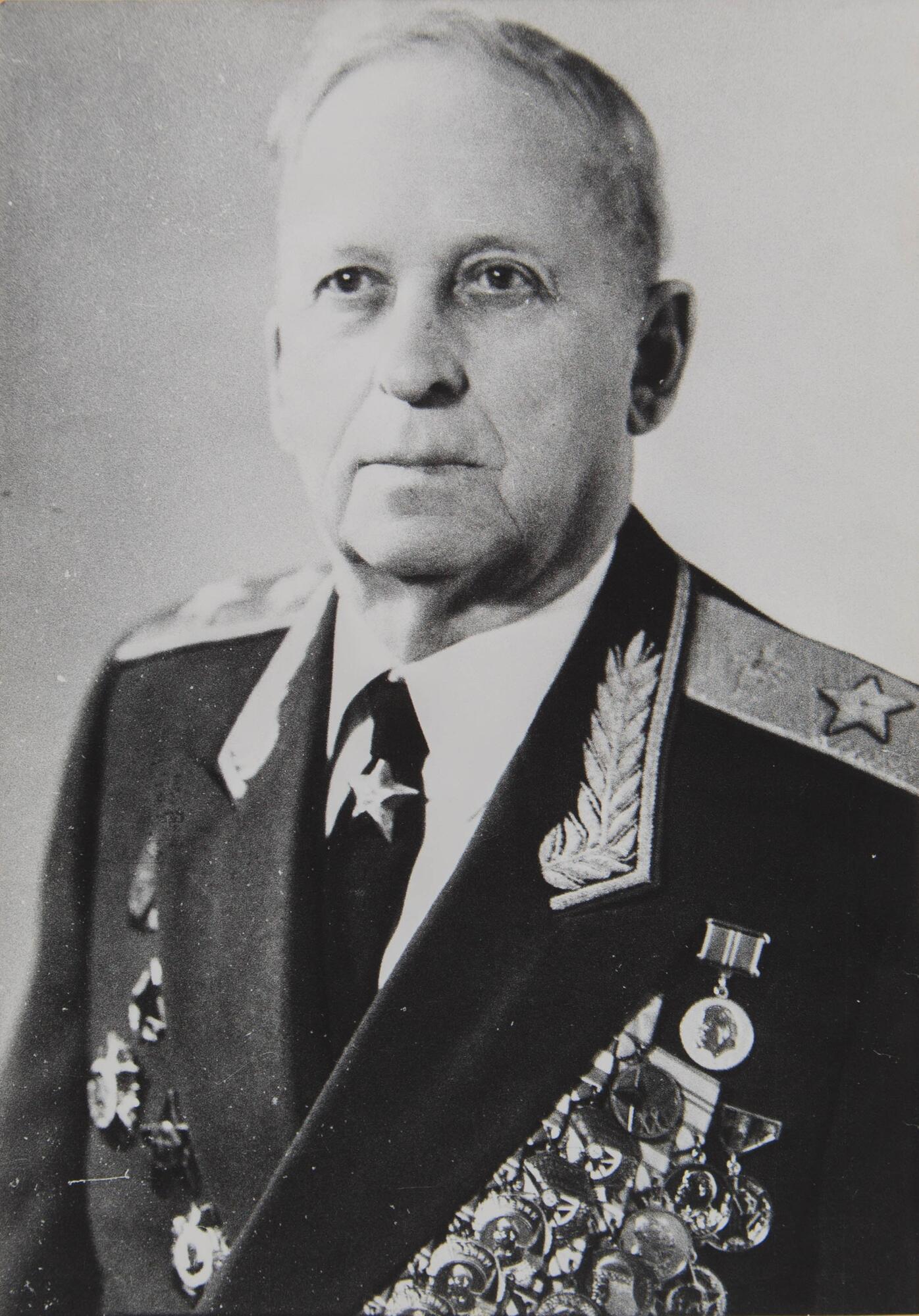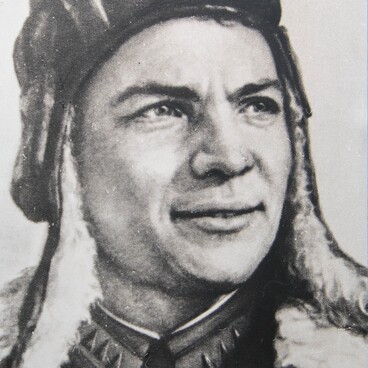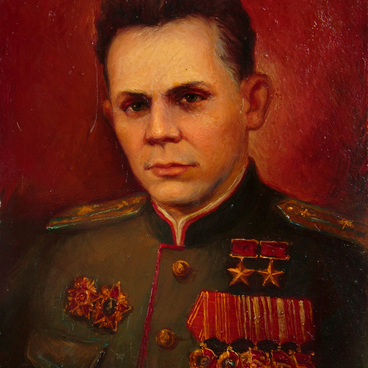Ivan Terentyevich Peresypkin was born in the village of Gorlovka, Yekaterinoslav Governorate, in 1904. He spent his childhood with relatives in the village of Protasovo in the Oryol region. In 1916, he completed a four-year school program. Immediately after school, Ivan Peresypkin began working as a miner at the Novomoskovsky Quarry in Gorlovka.
In April 1919, Peresypkin joined the Red Army and fought on the Southern Front during the Russian Civil War. In 1920, he was transferred to the reserve as he was still underaged. Until 1923, Ivan Peresypkin worked at a railway police station, a mine and a factory. Later, he returned to the Red Army.
Then, he entered the Military-Political School of the Ukrainian Military District, and upon graduation, became a member of the All-Union Communist Party (Bolsheviks). Peresypkin served in the communications squadron of the 1st Cavalry Division: he was appointed political commissar of the squadron, military commissar, and commander of a separate communications squadron.
In 1937, Ivan Terentyevich Peresypkin graduated from the Military Electrotechnical Academy of the Red Army and was appointed to the post of Military Commissar of the Research Institute of Communications. In a short time, he received the rank of colonel and became the deputy of Ivan Andreyevich Naidenov, Chief of the Communication Troops of the Soviet Ministry of Defense.
During the Great Patriotic War, Ivan Peresypkin headed the People’s Commissariat for Communications; in addition, he took the post of Deputy People’s Commissar of Defense of the USSR. At the same time, the officer repeatedly went to the front, took part in the battles of Moscow, Stalingrad and Kursk, as well as the liberation of Ukraine, Belarus and the Baltic States.
At the age of 39, Ivan Peresypkin was promoted to Marshal of Signals Troops. During the war, he received several state awards: the medal “For the Defense of Stalingrad”, the Order of Lenin, the Order of the Red Banner, the Order of Kutuzov 1st Class, and the medal “For the Defense of Moscow”. In peacetime, the officer was presented to Soviet and foreign awards multiple times.
Ivan Peresypkin was
Chairman of the USSR Radio Sport Federation and Chairman of the Historical
Commission at the Presidium of the Scientific and Technical Society of Radio
Engineering, Electronics and Communications named after Alexander Popov. During
his life, he wrote a large number of books and articles on history and issues
in communications. Ivan Peresypkin died in 1978, he was buried in the Novodevichy
Cemetery in Moscow.


